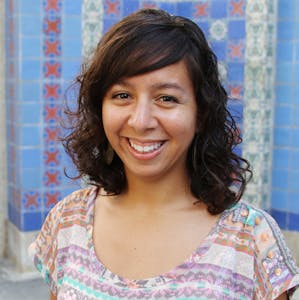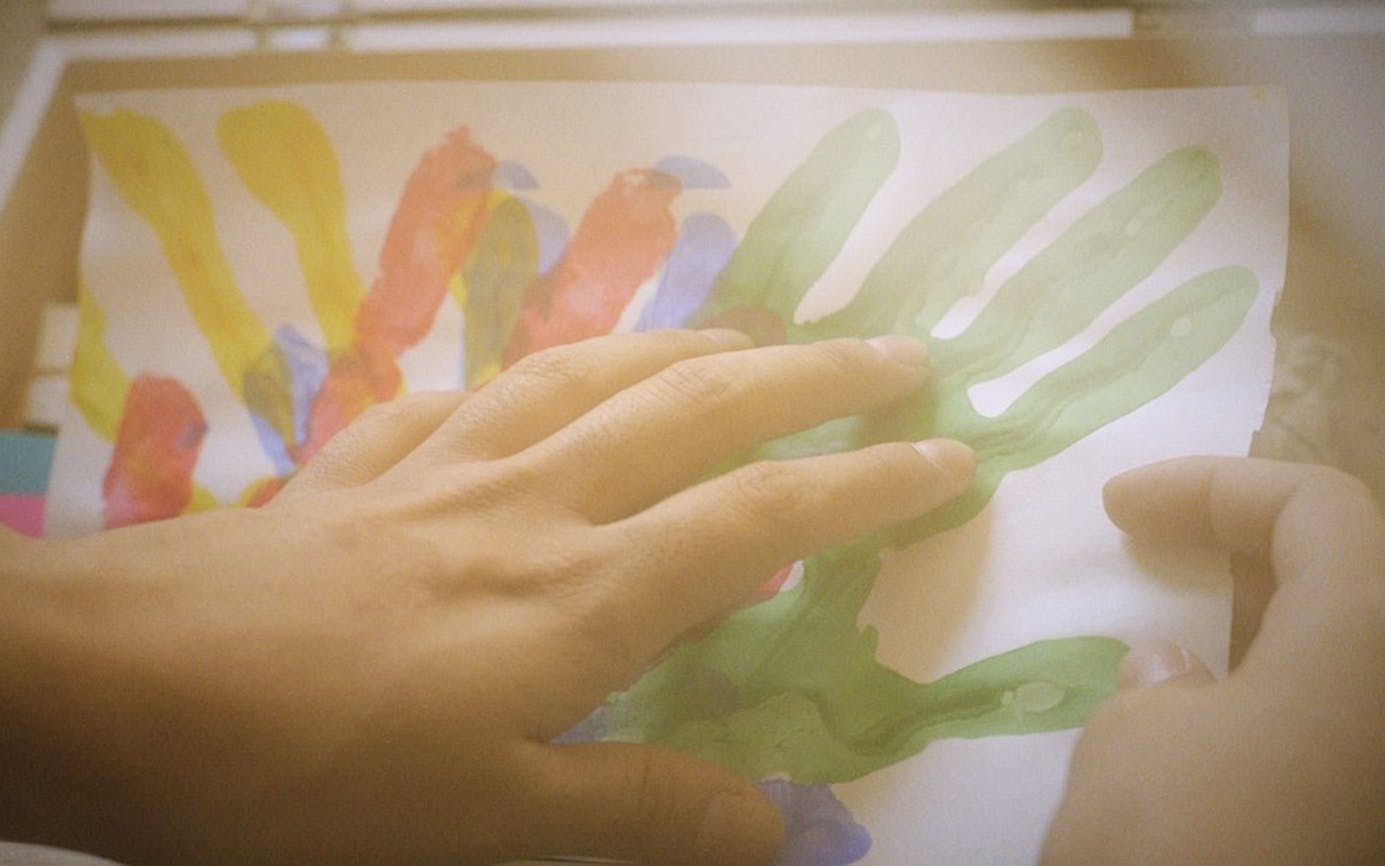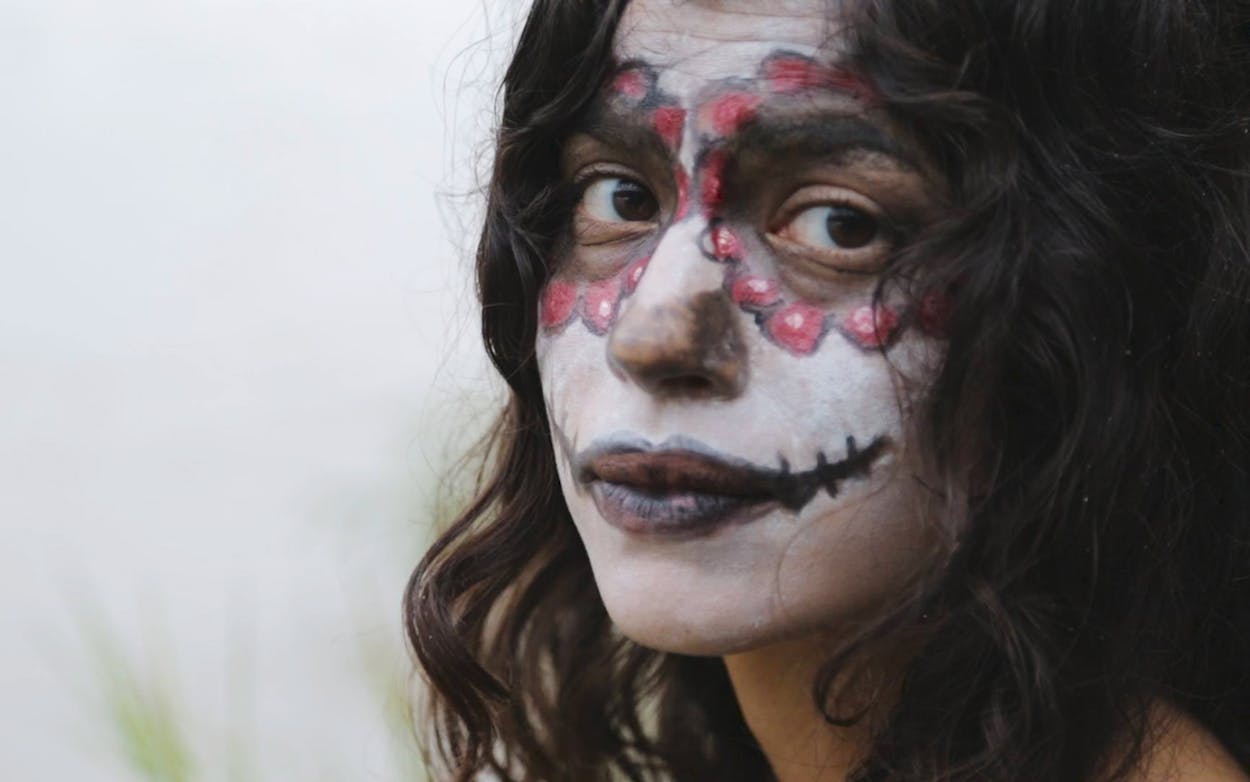In her hometown of El Paso, filmmaker Angie Reza Tures never questioned her identity as a Mexican American. But in the years since she left for the Bay Area (where she’s still based), it’s been impossible for her to ignore the countless ways that her heritage has been politicized. In 2016, Tures and five other female filmmakers from the U.S.–Mexico borderlands founded Femme Frontera—an annual film showcase that sought to highlight female voices from the border region. It began as a way for filmmakers to celebrate their roots, but as the collective toured the country and expanded to include female filmmakers from border regions around the world, it evolved into a fight for underrepresented voices to take their stories into their own hands.
This September, Femme Frontera will roll out their fourth showcase in El Paso, made up of ten films (five of which feature filmmakers from the El Paso–Juárez region). In Starving Souls, her entry with filmmaker Henry Alberto, Tures brings the poems of El Paso author Benjamin Alire Sáenz to life; with the dark comedy Pozole, Jessica Mendez Siqueiros follows a woman who accidentally kills her nana; and in the documentary The Cage, Lia Smaka highlights a Texas ranch where hundreds of immigrants have died each year after crossing the border. Ahead of a Femme Frontera screening of two short films at El Paso’s Plaza Classic Film Festival this past weekend, Tures spoke with Texas Monthly about the collective and how the border influenced her filmmaking.

Texas Monthly: When you all first launched Femme Frontera in 2016, your primary goal was to highlight more female filmmakers and expose more people to the borderlands. Has that changed at all?
Angie Reza Tures: Our mission as Femme Frontera, and my mission as a filmmaker, is about going against the hate that I’ve never experienced until now. Now, it’s more than just ignorance; it’s dangerous, and it’s violent. We’ve all been consumed with how to fight this as filmmakers. It’s a crazy time to be an artist, to be a brown person.
TM: You’ve said before that it was leaving the border that really informed your work as a filmmaker. What was that experience like for you?
AT: When I left El Paso, I didn’t realize how protected I’d felt. Being in a community where we were the majority, I was fortunate enough that I didn’t feel the effects of discrimination. I didn’t even notice I had brown skin. When I left for San Francisco, and later Australia, I ran into a lot of ignorance and dealt with comments from people asking if my dad worked in the field or things like, “Oh you’re from El Paso, where all the wetbacks are.” Because of that, my filmmaking became a lot more about my own identity and how I related to El Paso.
TM: How have things changed for you since coming back?
AT: Now—in the community that I’ve always felt so safe in—I’ve woken up with anxiety every day, wondering who’s going to come here next and tell me that I don’t belong in my own town. How do you digest that you’re no longer safe in your own community? That there are people outside who believe that your life doesn’t matter? A white supremacist came to our community believing that we’re brown, we’re criminals, we’re cockroaches, and we don’t deserve to live. It’s really shocking.
TM: Femme Frontera is meant to tackle the underrepresentation of Latinx people in media. How have you seen that lack of Latinx voices affect the community as a whole?
AT: For as long as I’ve been alive, there’s been a gross lack of representation of Latinx people in media. I think that it’s very easy to demonize a group that you know nothing about, especially when what you have seen are ridiculous stereotypes of those people. If you see a bunch of Latinos who are gang members in TV and movies, then when someone like President Trump says that these people are violent and going to invade our country, that’s the only representation we have and people believe it.
TM: How do you think having more filmmakers of color and having more women involved in filmmaking will change things for the better?
AT: As women and as Latinx people, to provide a platform for people to tell their own stories and have their own platforms, we begin changing the narrative, we begin challenging perspectives. It’s so essential that we tell our own stories, that we write our own narratives because no one should be able to call us those things. We’re here to provide that representation and again to change the story. We’re not different from everybody else.

TM: What are some of the responses you’ve received in touring this showcase around the country?
AT: The first showcase really stands out to me a lot, because the sentiments that we kept hearing again and again when we toured outside of El Paso is that they didn’t know about immigrants or about our culture. I think I was a little naive thinking that everyone knew our culture, but people were grateful that they got to learn new things and that their perspectives were a little overturned.
TM: How has the collective grown and changed over the years?
AT: Each year we receive more submissions, and that’s given us access to more diverse content. We’ve begun programming selections from all around the world, so rather than just showcasing works from our region—which is still highlighted—we’re showcasing works from border regions around the world. These are really powerful films that still relate to what’s happening in our own border region, so it’s a way to empathize with each other and find common ground.
TM: In what ways has Femme Frontera impacted the local film scene in the El Paso–Juárez area?
AT: This showcase is about bringing the community together and not just showcasing as much talent from this region as possible, but also helping inspire it. Even for people in the area who have never made a film before, we provide grants, resources, mentorship. We’re constantly trying to build the community for female filmmakers out here.








